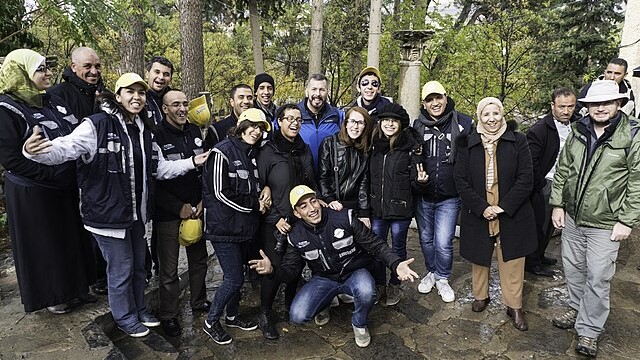In Algeria, hospitality is not a formality—it is a defining thread in the nation’s cultural fabric. Across its cities, mountain villages, and desert oases, gestures of welcome carry the weight of centuries-old traditions, reflecting a society where generosity remains a deeply held value.
The first exchange between visitor and host often comes in the form of a greeting: bienvenu in French or ahlan wa sahlan in Arabic. These words, offered without hesitation, are more than polite convention; they are an invitation into the social life of a place where strangers are received as guests, and guests are treated with honor.
Tea, almost invariably, follows. Served sweet and fragrant with mint, it arrives in delicate glassware, accompanied by conversation that may wander from family stories to politics to the latest neighborhood news. In a café along a narrow street in Algiers, on a terrace in the ancient town of Timgad, or in the shade of a tent pitched deep in the Sahara, such encounters unfold with a natural ease.
Meals in Algeria tend toward abundance and are often shared communally, a reflection of the belief that food is as much about fellowship as sustenance. Platters of couscous, steaming tajines, and shakshuka prepared with peppers and tomatoes are carried to the table, their recipes often preserved within families for generations. Bread is broken, hands are extended, and conversations meander long after the plates have emptied.
Hospitality extends beyond the home. Cultural festivals—whether marking a religious holiday, a harvest, or a local anniversary—draw together communities in open celebration. Music fills the air, from the rhythmic drumming of the Kabylie mountains to the blues-inflected rai of Oran. Dances are performed in circles that expand to include anyone willing to join, while artisans display traditional crafts under canopies strung with bright fabrics.
The landscapes themselves play host. Along the Mediterranean coast, breezes drift through bustling port cities where fishermen mend their nets beside the docks. In the interior, olive groves blanket rolling hills. Farther south, the Sahara stretches toward the horizon, its dunes glowing gold under the late-afternoon sun. Travelers who camp under its vast night skies often describe the experience as a kind of quiet communion—with the land and with those who share its solitude.
In Algeria, the welcome extended to visitors is not a performance but a reflection of identity. It is an inheritance passed down through generations, grounded in the belief that kindness offered to a guest enriches both giver and receiver. Long after the journey ends, what endures is not only the memory of places seen, but of doors opened, tables set, and hands extended in friendship.
Sources:
- Bennison, Amira K. The Great Caliphs: The Golden Age of the ‘Abbasid Empire. Yale University Press, 2009.
- Evans-Pritchard, Edward. The Sanusi of Cyrenaica. Oxford University Press, 1949.
- UNESCO Intangible Cultural Heritage List. “Mediterranean Diet and Social Traditions.” ich.unesco.org.

